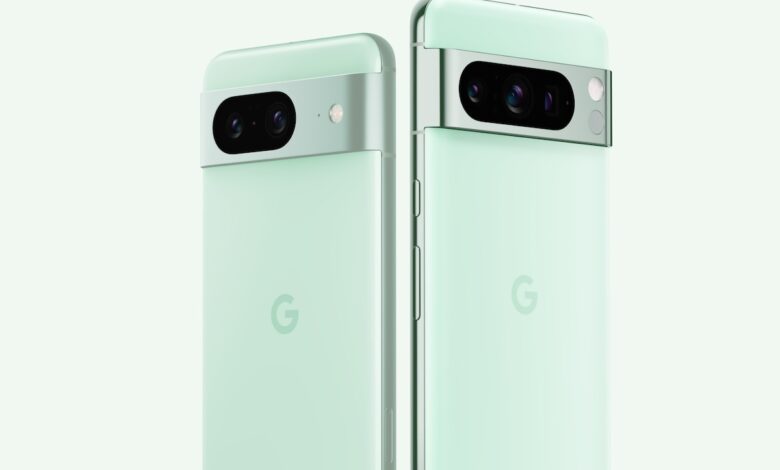
Google Pixel just introduced its latest two handsets, packed with new updates from the first Feature Drop of 2024.
The Google Pixel 8 and Pixel 8 Pro are available to pre-order today, starting at $699 and $999 respectively. The new design of the Pixel 8 is smaller than the 7, with a brighter screen and more powerful camera.
What new features are there for the Google Pixel 8 and Pixel 8 Pro?
1. New colour schemes
Most notably, there’s a new color available for both handsets, a mint green color alongside the more standard shades of Porcelain, Bay, Rose, Hazel, and Obsidian. Alongside those new colors, there are also various software updates to take in as well.
2. Upgraded ‘search on web’ feature
An upgrade to Google’s existing ‘Search on the web’ feature, the Pixel 8 phones will feature Circle to Search. Having already been seen in action on the Galaxy S24 series earlier this year, Circle to Search allows users to circle anything on their phone’s screen and do a Google Search for it. It’s activated by pressing and holding the home button/navigation bar.
3. Magic Compose is now powered by AI
Heading over to messages, Magic Compose is powered by Google’s AI and enables people to “rewrite a drafted message in different styles. Make sound more professional, concise, or even Shakespearean.” In the same way that you can copy a message into ChatGPT and ask for a rewrite, you’ll soon be able to do it directly from your phone.
4. Photomojis
Catching up to Apple’s long-standing Memoji feature, Google’s new Photomoji means you can select a photo of yourself, a pet, or any other picture on your phone and transform it into a sticker or emoji reaction to use in Google Messages. This feature won’t be exclusive to the Pixel 8 and Pixel 8 Pro, but will also be available for any Pixel phone from the Google Pixel 3a and newer.
5. Body temperature sensor
Last but not least, the Pixel 8 Pro also features a temperature sensor that can be used to take your own (or someone else’s) body temperature, using the existing Thermometer app to do a body temperature scan. You can then save the results to the Fitbit app and other compatible health trackers.
Featured image: Google




